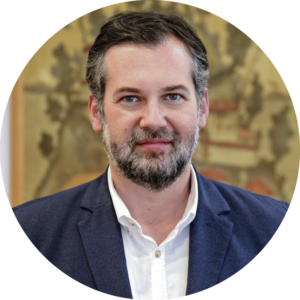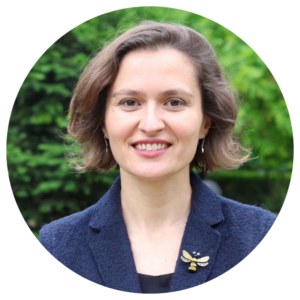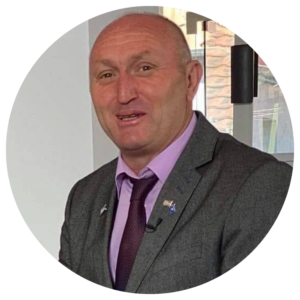From experienced politicians to new names, these are the candidates aiming to win the trust of the capital’s residents.
Prishtina is seen as the biggest prize in the race for local government and, as such, draws the most attention during local elections. As the most populous city in the country and the largest institutional, economic, and political center, Prishtina serves as a barometer for measuring a party’s political strength. A victory or defeat in Prishtina often signals broader electoral trends and reflects a party’s national influence.
Political parties treat the race for Prishtina as a strategic priority. The calculations for candidacy begin early, and campaign investments in the capital are typically larger than in any other city.
After the war, Prishtina was governed for 13 years by the Democratic League of Kosovo (LDK), which held onto the capital for four consecutive terms. Although other parties entered the race in each election cycle, none managed to challenge LDK’s dominance.
That changed in 2013, when the capital’s political allegiances shifted. Vetëvendosje (VV), with candidate Shpend Ahmeti, overthrew the LDK’s dominance in Prishtina. This marked VV’s first major victory in a key municipality, and it was a decisive moment in the party’s rise as a political force.
Above all, VV’s victory in the capital was seen as a sign that the citizens of Kosovo were ready for change, a trend that would be reflected later at the national level.
Shpend Ahmeti’s win was initially met with great enthusiasm, positioning him as a symbol of a new model of governance. However, that enthusiasm gradually faded and gave way to widespread criticism — particularly after Ahmeti left VV midway through his second term and aligned himself with the Social Democratic Party (PSD). This split had emerged from a deep internal divide within VV, which saw several key figures break away from the movement. The lack of results during Ahmeti’s time in office and his shift to PSD led to growing disillusionment among many of his former supporters, resulting in a significant drop in public support.
In the 2021 local elections, the LDK returned to power after eight years out of office. It ran a candidate outside its traditional structures, architect Përparim Rama, who built a campaign on his international reputation and a vision of governing a complex and politically divided city bureaucracy as, in his words, an urban planner and idealist, and not as a politician or as part of the LDK structures.
Meanwhile, VV ran Arben Vitia, one of the party’s most high-profile figures, the former Minister of Health. He was considered the favorite and, in the first round of the elections, secured a 16% lead over Rama. In the runoff, however, the results changed in Rama’s favor. With the support of his competitor, Uran Ismaili from the Democratic Party of Kosovo (PDK), who went on to endorse him, Rama managed to overturn the result and win with 51.06% of the votes, returning Prishtina once more under the leadership of the LDK.
Four years later, the race for Prishtina is unfolding with new names and familiar faces. LDK is re-nominating Rama, while PDK has once again chosen Ismaili, who achieved an unprecedented result for the party in the 2021 elections, gaining 21.69% of the total votes.
VV has entrusted its candidacy to the former Minister of Culture, Youth and Sports, Hajrullah Çeku, while the Alliance for the Future of Kosovo (AAK) has nominated Bekë Berisha, who ran for mayor of Istog in the last elections. The only woman in the race, Besa Shahini, a PSD candidate, has returned to politics after a period away from public life, launching her campaign in the streets and neighborhoods of Prishtina. Meanwhile, the Alternativa party has nominated Merkur Beqiri, while Fatmir Selimi has also joined the race as an independent candidate.
Candidates running for Prishtina are offering solutions to the same problems that have plagued citizens in previous elections. Issues expected to shape their political programs include crippling traffic and pedestrian-unfriendly infrastructure; deadly winter air pollution and a critical lack of green spaces; the uncontrolled construction boom; soaring rents alongside a large number of vacant apartments; and the ongoing mismanagement of waste and stray dogs.
The local elections are set for October 12, but the unofficial campaign has already begun. K2.0 profiles the candidates seeking to lead Prishtina, their political and professional backgrounds, and the promises they are making to the capital’s citizens.

Although a new name in Kosovo politics, Rama entered the race for Prishtina in 2021 with an internationally established career in architecture and interior design. In 1992, at the age of 16, he moved to the UK, where he completed both his Bachelor’s and Master’s degrees in architecture. In 2004, he opened his own architecture firm, through which he has won numerous awards.
He rose to prominence in Kosovo in 2012 when he represented Kosovo at the Venice Biennale of Architecture with an exhibition titled “The Filigree Maker.” Just a year later, he and his team won First Prize in the 2013 World Interiors News Annual Award for the interior design of the Hamam Jazz Bar in Prishtina, which, for a time, was one of the city’s most prominent nightlife spaces. Rama was a member and vice-chairman of the board of Manifesta, a nomadic European Biennale held in different European cities every two years; Prishtina hosted the event in the summer of 2022. He resigned from this position when he decided to run for the mayor of Prishtina.
In 2019 and 2020, Rama’s name made local headlines in controversy. His business had designed and was a co-investor in a 17-villa residential complex on the shores of Lake Badovci, one of Prishtina’s main sources of drinking water. Although the municipality approved the plans, the project sparked strong reactions from residents and environmentalists who feared the construction could endanger the capital’s water supply.
The project was ultimately canceled by the current LDK leader, Lumir Abdixhiku, who had served as Minister of Infrastructure during Kurti’s first government in 2019. Abdixhiku stated that the government’s decision responded to civic activism and a commitment to protecting natural resources. Rama was still given the opportunity to run for LDK, even after Abdixhiku took over the party leadership in 2021.
In the 2021 local election campaign, Rama’s platform focused on three “P-s”: Practical Prishtina, Clean Prishtina, and Experiential Prishtina. “Practical Prishtina” targeted infrastructural changes, which included education, health, road safety and parking, with a particular focus on an ambitious project to redesign Mother Teresa Square, extending it into the heart of Prishtina. This aimed to increase pedestrian accessibility and establish a new traffic hierarchy prioritizing pedestrians first, then public transport, with cars last. “Clean Prishtina” emphasized green mobility, creating green parks, expanding walking paths for pedestrians and people with disabilities, improving public transport connections to surrounding mountainous areas, and implementing projects for waste management and recycling. “Experiential Prishtina,” the cultural component of the platform, included infrastructure plans for an orchestra, a new theater, an art gallery and a modern hall for various cultural events — placing culture at the center of the urban experience.
Four years later, Rama’s administration has faced widespread criticism, with only a few of these projects having been implemented. One of the most frequent accusations against him is the lack of execution: many projects remain on paper — initially presented with much fanfare, which are then delayed or never realized. Rama has justified this by pointing to blockades from central government, even though there are cases where projects, wholly in the municipalities jurisdiction, have not been completed, such as the connection between the “Dardania” and “Kalabria” neighborhoods, the underground parking lots at the Post of Kosovo’s central facility in Dardania and the operation of ski lifts in Gërmi.
In his re-nomination on July 24, Abdixhiku highlighted the completion of key projects, which are still in progress, as significant achievements of Rama’s first term and as remaining goals for his second. Among the projects he mentioned were the construction of the inner ring road, George Bush Square, Road A, and the all-day school model, which have just begun to be implemented.
The closure of George Bush Square in 2024 was one of the most controversial interventions in the capital. A major connecting road was closed to prioritize pedestrians, but this caused significant chaos in urban traffic, with no feasibility study made public to assess the impact of the change. The tender for transforming the road into a square was blocked by the Inspectorate for the Protection of Cultural Heritage, which argued that the project infringed on protected sites. This face-off was the third between the Municipality and this institution due to non-compliance with legal procedures before construction commenced. The tender, valued at over 18 million euros, remains the only concrete phase of the project, while the city continues to suffer the consequences of an intervention that began with much fanfare but ended in an urban mess.
In addition to the unbearable urban chaos that engulfed the city, Pristina took on the appearance of a garbage dump for weeks due to disputes between the municipality and the public enterprise “Pastrimi”.
In this institutional clash, however, it was the citizens who suffered the consequences. The National Institute of Public Health of Kosovo (NIPHK) warned that the mismanagement of waste creates favorable conditions for the development of bacteria, parasites and insects, which increases the risk of spreading infectious diseases. At this time, the prosecutor’s office launched investigations into the failure of waste management in the capital.
Meanwhile, during Rama’s mandate, Prishtina launched a full-day learning model in September 2024, for the first time in five schools. This initiative has been highly praised as it promotes public education and provides a learning model that has so far been exclusive to private schools, at a much higher cost.
Public schools that have implemented this model have highlighted the possibility of providing a full-day stay for children, which, in addition to teaching activities, also includes extracurricular subjects, completing schoolwork, and avoiding a problem often cited by parents, the carrying of heavy school bags. Although this model currently has a limited scope and only includes a few schools in the Prishtina region, the aim is to expand it. However, to achieve this, the construction of new school buildings is necessary due to the large number of students already in Prishtina’s schools.
Another chronic problem in Prishtina remains the management of stray dogs. According to data from the University Clinical Center of Kosovo (UCCK), 112 cases of bodily injuries caused by stray dogs were recorded between January and September 2024, a statistic underscoring the urgent need for their safe management and treatment through institutional policies.
In 2022, the Municipality announced plans to expand sterilization campaigns and to establish a Stray Dog Treatment Center. In June 2023, a program was launched by the Municipality offering a subsidy of 50 euros per month to citizens who adopt up to five dogs. This project, however, lacked an effective implementation mechanism, and abuses involving both the project and dogs soon came to light. In 2022, Rama also stated that the Municipality was preparing to make the shelter for stray dogs functional and that the location for this center was ready. This shelter, however, has never been put into operation.
In this year’s local elections, Rama is running with the slogan “Prishtina beyond”, as he puts it, “the ordinary”. Rama has not yet published the political program with which he intends to take over the leadership of Prishtina for another term, and he has not launched any significant electoral activity, apart from promoting his work as the current mayor of the capital.

Hajrullah Çeku is the VV candidate for Kosovo’s capital, despite coming from the country’s second-largest city, Prizren. His candidacy has come as a surprise.
Çeku comes from the position of Minister of Culture, Youth, and Sports (MCYS) — a role that has frequently been part of public debate. His interventions as minister often clashed directly with the Municipality of Prishtina, after the Inspectorate of Cultural Heritage, operating within the MCYS, halted some municipal works in various localities due to procedural non-compliance. As a result, Çeku has partly been perceived by public opinion as the “institutional opponent of Përparim Rama.”
Çeku studied Political Science and holds a master’s degree in Local Governance and Development from Trento, Italy, and Germany. He is also known as a vocal civil society activist; he led the organization EC Ma Ndryshe before joining VV, an organization that became one of the most critical voices advocating for the protection of cultural heritage, especially in the city of Prizren.
He has also served as a member of the Kosovo Tourism Council (KTC) and, as an external expert, has supported the drafting of a national policy for the integrated preservation of cultural heritage in Kosovo.
His experience of political leadership began in Tirana, where he served as the Deputy Minister of Tourism and Environment in the Government of Albania for 13 months, between 2017 and 2018. Çeku was in the cabinet of Edi Rama’s government, along with several other figures from Kosovo, including his current opponent for Prishtina, Besa Shahini. Çeku resigned from this post at the end of 2017, saying he had decided to devote more time to his family. He returned to the political scene when he joined VV in 2019.
His work over the last four years as Minister of Culture has been characterized by a strong commitment to the fields of cultural heritage and archaeology. During his term in office, one Law on Art and Culture was adopted, fully or partially repealing several pre-existing laws related to various areas, including the Law on Theaters, the Law on Cultural Institutions, and the Law on Philharmonic, Ballet, and Opera. Although the law brought about the harmonization of multiple regulations, it was also criticized for disregarding public feedback — concerns that the law would contribute to the centralization of culture.
Among Çeku’s key promises was the construction of a new National Theater of Kosovo (NTK), but he later shifted on this, pledging its restoration instead. The NTK building was closed by the Ministry of Culture in July 2022, with the justification that it posed a safety risk. According to a report compiled by university professors, however, this stated reason was deemed unfounded, with no such risk identified. In May 2024, the seven million euro restoration project was approved, but has not yet been finalized.
In its government program for the period 2021–2025, VV had promised that, in addition to restoring existing infrastructure, it would undertake the conception and establishment of new national cultural institutions, including the Opera and Ballet Theater, the National Theater of Kosovo (NTK), the Museum of Contemporary Art (MCA), and the Kosovo Cinema Network. Although the procedural establishment of the Opera and Ballet Theater and the MCA is in progress, it is still unknown when construction will begin. The commitments for these two institutions have also been carried over by VV into its election program for the 2025 elections.
According to KOHA, the MCYS, during Çeku’s term, has often used capital investment funds to subsidize projects in what is commonly known as the “independent cultural scene,” despite the fact that cultural events — including those of state institutions — continue to be held in private venues with high rental costs or in spaces that do not meet minimum standards.
During Çeku’s mandate, the ministry began supporting independent cultural organizations and individuals through institutional grants, including three-year grants, which represent a valuable opportunity for organizations to build and maintain financial sustainability in an otherwise difficult environment.
However, access to these grants was not easy for the benefiting entities. According to a report by the GAP Institute, which conducts research monitoring the work of public institutions, the challenges in the provision of subsidies and grants by the MCYS include, among others: the malfunctioning of the online system and the e-Kosova platform, the loss of applicant files/documents by the MCYS, lack of transparency during the evaluation processes, negligence by the MCYS in closing advances from beneficiaries, and the limited capacity of the MCYS to monitor project implementation.
Meanwhile, Çeku’s mandate has also been marked by the strike of NTK actors. Through the Trade Union Association of Artists of the National Theater of Kosovo (SHSATKK), the actors went on strike for more than 100 days in November 2024. The reason for the strike was the adoption of the Law on Salaries in the Public Sector, which assigned NTK actors a lower coefficient than they had requested. They demanded an increase in this coefficient and ended the strike after Çeku pledged to resolve the issue.
Çeku has not yet published the electoral program with which he intends to run for the leadership of Prishtina, nor has he launched any notable electoral activity, apart from sharing his work as minister in the restoration of cultural heritage sites and investments in sports facilities in Prishtina.

Uran Ismaili is the only candidate in this race who has previously both competed and collaborated with the current mayor, Rama. Before the 2021 runoff, they were opponents; in the second round, Ismaili and the PDK aligned with Rama to defeat VV’s candidate, Vitia. This alignment was formalized through a municipal coalition that lasted from December 2021 to February 2024.
The coalition collapsed because of disputes regarding property exchanges related to the construction of a neighborhood, designed by Rama, near Lake Badovci, which planned to include properties from the “Prishtina e Re” neighborhood. The PDK had strongly opposed this swap, and this is where the rift within the coalition began. The PDK directors were dismissed shortly before they were set to resign, and the former collaborators turned into opponents again.
In the 2021 elections, although still not enough to win, Ismaili gave PDK its best-ever result in the capital. In the first round, he received around 21% of the vote, a feat that shattered expectations for a party that has traditionally failed to gain widespread support in the capital and brought a new image to the party in Prishtina.
Unlike Rama, Ismaili is a key part of the party he represents, having joined PDK in 2007. In 2013, he gained popularity when he became Kadri Veseli’s chief of staff, and his power in the party has only grown since then. In 2016, Veseli introduced Ismaili to the public as PDK’s vice-chairman.
In 2017, Ismail’s political rise continued in the post of Minister of Health (MoH). During his term, he promised major reforms and launched them with enthusiasm, signing contracts for the supply of medicines, promoting the Health Insurance Fund (HIF), and, finally, investing in facilities to improve the appearance of the UCCK clinics. He left the Ministry in 2020, leaving behind some traces of renovation, which have not tangibly addressed the structural challenges of the health system in Kosovo, including the most controversial, health insurance, which everyone pledges to improve, yet remains a promise unfulfilled to this day.
After the Special Court filed an indictment against Veseli and Hashim Thaçi in 2020 and after the crushing defeat of the PDK in the 2021 elections, the party underwent an internal reform process. Ismaili’s position within the party structures remained intact even after these internal reforms. In this context, for the first time, the leadership of the PDK was taken over by Memli Krasniqi, a person who is not part of what is known as the party’s “war wing.” Meanwhile, Ismaili was reappointed as the party’s vice president, positioning himself as one of the key figures in a new generation of leaders.
Unlike 2021, when he launched his campaign with the slogan “Prishtina unites us” and focused on the renewal of public spaces, this time Ismaili has concentrated his efforts on social media, especially TikTok, using the rhythm of short videos and “memes” as part of his communication strategy.
In 2021, he posted videos of himself throughout the city, symbolically intervening — arranging benches, picking up trash cans, painting sports fields — offering a “teaser” of the big changes he envisioned. His campaign at the time relied on holding small meetings with residents of different neighborhoods, where he presented “attractive” ideas and tried to present himself as both spontaneous and approachable. These activities included using an electric scooter to symbolize an eco-friendly approach and hosting podcasts to spread enthusiasm and positivity for the campaign.
For the 2025 campaign, Ismaili has adopted the slogan “Time for Prishtina,” trying to reinforce his bond with the city and convey that it is the only place he envisions living and working.
In the video he launched his campaign with, Ismaili promised that, if he came to power, his first decision would be to open George Bush Square to start unblocking traffic. Through his pledges, he has targeted Prishtina’s chronic problem, promising to unblock the city’s gridlock within his first 18 months; expanding and building sidewalks to enable safer movement for pedestrians; addressing the problem of stray dogs and improving public lighting; creating a daily system of waste management and maintenance of public spaces
In contrast to his 2021 campaign, which was characterized by direct engagement in on-the-ground activities, this year’s campaign leans more heavily into personal narrative and social media while preserving his established visual style.

Besa Shahini is the only woman candidate running for mayor of the capital. She holds a Master’s in Public Policy from the Hertie School in Berlin.
In 2004, she co-founded and served as executive director of the Kosovo Stability Initiative, a Kosovo-based think tank focused on governance and socio-economic development issues. In 2016, Shahini founded and led the organization Plenum for Education, an initiative focused on research and analysis of the pre-university system in Kosovo. In parallel, she has acted as an independent policy analyst, focusing on education and European integration. For over a decade, between 2004 and 2015, Shahini was part of the European Stability Initiative (ESI) team in Berlin, where she served as a senior policy analyst.
Shahini returned to the political scene after a nearly three-year period as Deputy Minister and then Minister of Education, Sports and Youth in the Republic of Albania, from January 2019 to September 2020. She took over the ministry following changes in Edi Rama’s cabinet, which came after the student protest of December 2018 — the largest student protest in Albania since the December 1990 movement.
In response to these protests, Shahini introduced the “Pact for the University,” which included changes to address the students’ demands. Although she resigned from this position in 2020, experts in Albania suggest that this Pact has only been implemented on paper.
During her time as minister, Shahini was involved in organizing an initiative of volunteer engineers from Kosovo to assess the condition of schools and universities after the 2019 earthquake. This large-scale effort covered areas such as Tirana and Laç, evaluating the safety of educational facilities and residential buildings. In August 2020, Shahini announced that, for the first time, assistant teachers had been licensed for children with special needs in the “Special Education” profile, calling this a fundamental pillar of inclusive policy in pre-university education.
After the end of her term as minister in Albania, her political activity became more withdrawn. During this almost five year period, she was a consultant for international organizations in the field of education.
Shahini returned to political life through the structures of the PSD, a party led by her husband, Dardan Molliqaj — who was a former secretary and key figure of VV, before he and others left VV to form the PSD. Shahini’s candidacy for Prishtina has attracted attention for its personal and direct approach to addressing the city’s issues, which she also faces as a resident.
Under the slogan “Besa for Prishtina,” Shahini has managed to penetrate the public sphere. With short videos made across Prishtina’s neighbourhoods, she has focused on the urban experience of children, setting this as her central pillar, one that affects the experience of all citizens. In these videos, she highlights problems in the education system and the lack of pedestrian and public spaces. According to Shahini, the city serves concrete rather than its citizens. Her campaign has raised the issue of concrete and construction choking Prishtina, emphasizing the paradox between empty apartments and unaffordable rents. She has used this pre-campaign to identify the problems that shape life in the city, flagging concrete policies and legal initiatives to address them.
Although the PSD is not a major party with a broad electoral base, it relies mainly on a network of political activists, inheriting structures previously used by the Municipality of Prishtina during the leadership of Shpend Ahmeti.

Bekë Berisha’s run for mayor has been a surprise. In the 2021 elections, he failed to be elected mayor of his hometown, Istog — the northwestern city where AAK traditionally has strong support.
Berisha, however, is one of the few members of his party who has managed to go beyond the Dukagjini Plain and build an electorate base in Prishtina. His direct style in television appearances has defined his political career; in the Assembly, he often outshines his own party’s leader, Ramush Haradinaj. This approach secured him a seat in the Kosovo Assembly in the last elections, surpassing the traditional narrow circle that usually dominates AAK lists. His personal “Leja Bekës” campaign, where he portrayed himself as a superhero of sorts, solving local problems, has significantly contributed to the rise of his political profile.
In his direct approach, Berisha has gone viral with statements, such as his claims that “in Kosovo no company paves its potholes at ground level,” and that he drinks up to 30 espressos daily.
So far, he has promised a Prishtina without car congestion and safer schools, citing in particular the problem of drug use in schools. His campaign, however, has focused more on counting problems rather than providing concrete solutions to the capital’s urban issues.
In past elections, AAK has run with candidates like entrepreneur Genc Meraku or local government expert Besnik Tahiri, but it has failed to win the trust of Prishtina’s citizens. Berisha’s candidacy represents a new attempt by AAK to extend its influence to the capital, going beyond the electoral boundaries of Dukagjini.

Merkur Beqiri is the Alternativa’s candidate for mayor of Prishtina. As the newest member of the party led by Mimoza Kusari-Lila, Beqiri brings experience in consultancy and cooperation with international organizations, including the UN Refugee Agency (UNHCR), the World Health Organization (WHO), the Food and Agriculture Organization (FAO) and the World Bank (WB).
Alongside the candidates of major parties, Prishtina often grants space to candidates from smaller parties, who — subject to winning a seat in the Municipal Assembly — usually form coalition agreements with the winning party.
In his first public appearance, Beqiri described the capital as an organism needing deep reforms to become functional and attractive to its citizens. His focus includes transforming spatial planning, restructuring municipal administration and modernizing public services.
His ambitious goal is to turn Prishtina into “the most livable capital in the Western Balkans,” supported by modern and expanded public transport, urban planning that integrates road networks harmoniously, green and accessible parks and squares, and neighborhoods designed for pedestrians rather than cars.
Beqiri also pledges to establish a non-stop waste collection and management system, ensuring every household has a drinking water supply and actively protecting the environment.
In the social and educational sectors, he promises to build modern, safe schools, make health centers fully operational, and digitalize municipal services under the “Smart City” concept. His electoral program also includes investments in culture, sports, recreation, and dedicated care for both young people and the elderly.

Fatmir Selimi has joined the race for the capital as an independent candidate. Selimi, a master of agriculture and an expert in agro-economics, has long worked as a consultant with international organizations in the country, providing expertise in the rural development sector.
Selimi aims to decentralize local government, proposing the functionalization of at least 10 local communities that will work in direct coordination with the municipality. For Selimi, this is the best way to get closer to citizens and address their needs in his native city.
His main priorities include providing better conditions in the education sector, improving school infrastructure, building sports facilities lacking in Prishtina’s neighborhoods, legalizing unregistered housing, and establishing a fair and equal property tax system.
Selimi aims for better spatial planning for the city, rural areas, and Gollak, seeing Prishtina as “the city of Bliri, good people, students, and cafés that keep it alive all day long.”
With the slogan “Together we can make Prishtina better,” Selimi has begun his political adventure in Prishtina as an independent alternative to the other political parties.
Feature Image: Ferdi Limani / K2.0
Dëshironi të mbështetni gazetarinë tonë?
Në Kosovo 2.0, përpiqemi të jemi shtyllë e gazetarisë së pavarur e me cilësi të lartë, në një epokë ku është gjithnjë e më sfiduese t’i mbash këto standarde dhe ta ndjekësh të vërtetën dhe llogaridhënien pa u frikësuar. Për ta siguruar pavarësinë tonë të vazhdueshme, po prezantojmë HIVE, modelin tonë të ri të anëtarësimit, i cili u ofron atyre që e vlerësojnë gazetarinë tonë, mundësinë të kontribuojnë e bëhen pjesë e misionit tonë.
Anëtarësohuni në “HIVE” ose konsideroni një donacion.
- This story was originally written in Albanian.


